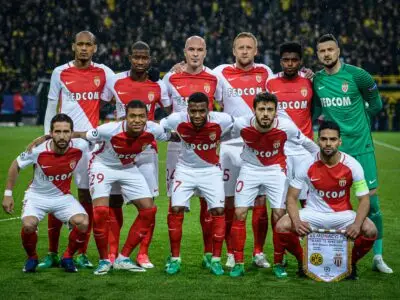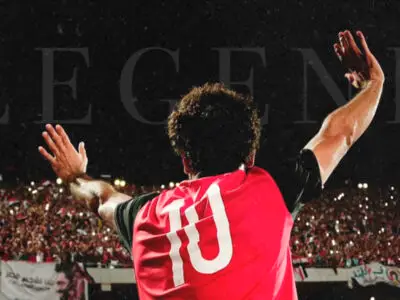Mesut Ozil.
A name synonymous with creativity and vision on the pitch. A player who saw passing lanes where others saw walls, who turned football into poetry with the flick of a boot.
Yet, behind the dazzling assists, the trophies, and the standing ovations lies a deeper story—a story of a player who slowly became disillusioned with the very sport he once mastered.
How does one of football’s brightest stars, a World Cup winner, a record-breaking playmaker, go from defining games to feeling like an outsider in modern football?
Was it tactical evolution, political tensions, or simply the sport’s shifting priorities that pushed him away?
Let’s take a look at how one of the game’s purest No. 10s fell out of love with the sport that once made him shine.
Roots in Gelsenkirchen: A Playmaker Forged by Two Worlds
Growing up in Gelsenkirchen, Mesut Ozil wasn’t just another kid kicking a ball around the concrete streets—he was a product of two cultures, two identities, two footballing philosophies.
Born to Turkish immigrant parents, he was raised in a working-class neighborhood where life was tough, but football was an escape.
In Germany, discipline, structure, and tactical precision defined the game. In Turkey, flair, creativity, and street football instincts reigned supreme.
Ozil absorbed both.
You could see it in the way he played—elegant yet efficient, instinctive yet intelligent. His passes were weighted to perfection, like an artist adding the final brushstroke to a masterpiece.
Growing up in a multicultural household also shaped his worldview. He didn’t just want to play football—he wanted to belong, to bridge the gap between cultures, to prove that a kid with Turkish roots could make it in the land of Franz Beckenbauer and Michael Ballack.
But for Ozil, success was never just about talent. It was about breaking barriers, proving doubters wrong, and showing that creativity still had a place in an era increasingly dominated by physicality and pressing.
The Rise of a Playmaker: From Schalke 04 to Werder Bremen
I still remember the first time I watched Mesut Ozil’s highlights on YouTube playing for Schalke 04. He wasn’t the biggest or the fastest player on the pitch, but there was something different about him—something effortless.
At just 17, he was gliding through Bundesliga defenses, threading passes no one else even saw. You could tell he wasn’t just playing football; he was orchestrating it.
FC Schalke was supposed to be his launchpad, but football is rarely that simple. Contract disputes and club politics saw him leave in 2008, a move that felt premature at the time. But looking back, it was the best thing that could have happened.
Ozil landed at Werder Bremen, a club that nurtured creative talent, and it was there that he truly became a star.
Watching his highlights from those Bremen days still feels like watching an artist at work. His movement was fluid, his vision unreal.
I remember one particular assist—Ozil took out an entire defensive line with a single, perfectly weighted through ball. It was like he had footballing radar, a sixth sense for space and timing.
That 2009–10 season, Bremen reached the DFB-Pokal final, and Ozil was the heartbeat of the team, racking up assists and scoring crucial goals.
He wasn’t just a promising youngster anymore; he was one of the most exciting playmakers in Europe. And when the 2010 World Cup arrived, the world was about to see exactly what he was capable of.
2010 FIFA World Cup
The 2010 World Cup, held in South Africa, was a significant tournament that showcased the talents of a young Mesut Ozil as an elite attacking midfielder.
He contributed to the team’s dynamic counterattacks and helped the team reach the semi-finals, where they lost to Spain, the eventual champions.
Ozil’s brilliance in midfield was instrumental in Germany’s 4-1 victory over England and 4-0 win against Argentina. His performance earned him global recognition and cemented his place as one of football’s rising stars, not to mention his super strike against Ghana.
Following his impressive World Cup display, Ozil secured a high-profile transfer to Real Madrid.
The Maestro at Madrid: Ozil’s Perfect Symphony
When Mesut Ozil signed for Real Madrid in 2010, I knew the world of football was about to witness something special, something magical.
He had already dazzled the world at the 2010 World Cup with Germany, effortlessly gliding past defenders and setting up goals like it was second nature.
But stepping into the white of Madrid? That was another level entirely.
I remember watching his first few games at the Santiago Bernabeu, and it was clear—this was the stage he was born for.
Playing alongside Cristiano Ronaldo, Karim Benzema, and Angel Di María, Ozil didn’t just fit in; he elevated the entire team. The way he floated between the lines, picking out passes with millimeter precision, was pure artistry.
You never saw him sprinting frantically; he didn’t need to. His brain worked faster than anyone else’s feet.
There’s one assist that still lives rent-free in my mind—El Clasico, 2011.
Ozil, with his signature bounce in his step, received the ball, looked up for just a split second, and played an outrageous no-look pass to Ronaldo, slicing through Barcelona’s defense like a knife through butter. Ronaldo finished, of course, but that assist? That was the real moment of genius.
Under José Mourinho, Ozil became the ultimate playmaker. He led La Liga in assists for three straight seasons, feeding Ronaldo goal after goal with an almost telepathic connection.
Madrid’s 2011–12 title-winning season, when they broke the 100-point barrier, had his fingerprints all over it.
Watching Ozil in that Madrid side felt like watching Yanni or Antonio Vivaldi conduct an orchestra. Every touch, every pass, every movement had a purpose.
And yet, despite all the magic, something about the modern game was beginning to change, and soon, his fairytale in Madrid would come to an abrupt and unexpected end.
Ozil to Arsenal: The Signing That Shook the Premier League
Deadline day, September 2, 2013. Arsenal had been quiet all summer, and frustration among the fans was reaching its peak.
Then, out of nowhere, rumors started flying—Mesut Ozil was leaving Real Madrid. Not just leaving, but heading to Arsenal.
Sky Sports reporters were stationed outside the Emirates, and the energy was unreal. Fans swarmed the cameras, chanting his name before the deal was even confirmed. I sat glued to my screen, refreshing Twitter like my life depended on it.
When the announcement finally dropped—£42.5 million, a club-record signing—it felt like a seismic shift. This was Arsenal FC, a team that had struggled for years to land a genuine world-class player, pulling off the biggest coup of the summer.
Watching Ozil in the Premier League was like witnessing an artist introduced to a new canvas. That debut against Sunderland? Vintage Ozil.
Barely a few minutes in, he cushioned a perfect first touch, lifted his head, and slid an inch-perfect assist to Olivier Giroud. It was effortless, it was genius, it was Mesut Ozil.
The 2015-16 season was when he truly hit his peak—19 assists in the league, just one shy of Thierry Henry’s record. He was untouchable.
That outside-of-the-boot pass to Giroud against Aston Villa, the ridiculous flick assist to Alexis Sánchez—Ozil was painting art pieces.
But Ozil was more than stats. He brought an aura, a sense of magic Arsenal had been missing since the days of Bergkamp. Watching him at his best, you couldn’t help but think—this is the kind of player you pay to watch.
And yet, for all his brilliance, the tides of modern football were shifting, and soon, the Premier League’s most elegant playmaker would find himself at the center of a storm that would test him like never before.
Ozil and the 2014 World Cup: The Architect of Glory
That Die Mannschaft team had everything—power, precision, and an unrelenting hunger. But at the heart of it all was Mesut Ozil, the silent orchestrator, the man who made the machine tick.
Remember Germany’s opening game against Portugal? Yes, Thomas Müller stole the headlines with a hat-trick, but Ozil was the one pulling the strings. His movement, his ability to glide between the lines, his weight of pass—it was all surgical, calculated, perfect.
Then came the Algeria game in the Round of 16. It was a battle—fast, chaotic, unpredictable. Germany was on the ropes, struggling to break down Algeria’s stubborn defense.
And then, deep into extra time, the moment came. Ozil pounced on a loose ball inside the box, took a touch, and hammered it into the net. No finesse this time. Just raw, determined finishing.
That goal sealed Germany’s place in the quarter-finals, and you could see the fire in his eyes—he wasn’t just an artist; he was a warrior when it mattered.
Of course, no one can forget that 7-1 demolition of Brazil. It was one of those nights where football defied logic—one of the biggest choke jobs in football history.
Even with the game over in 30 minutes, he never lost focus. Every pass was precise, every run purposeful. He could have added a goal to his tally late on, but instead, he unselfishly set up Sami Khedira. That was Ozil—always putting the team first, always about the bigger picture.
Then came the final. Germany vs. Argentina. Maracanã Stadium. The biggest stage of all.
Ozil didn’t get on the scoresheet, but his influence was everywhere. His silky first touches and his ability to calm the game down made all the difference.
And when Mario Götze chested down André Schürrle’s cross and volleyed in the winner, it was the culmination of everything that Germany had built. Ozil, exhausted but victorious, had done it.
The boy from Gelsenkirchen, the son of Turkish immigrants, is now a world champion.
Ozil and Arsenal’s Banter Era: A Genius Trapped in Chaos
Being an Arsenal fan during Mesut Ozil’s prime years was a rollercoaster of emotions.
On the one hand, you had a genius world-beater. On the other hand, you had a club that was sinking into mediocrity and was unable to build a proper team around its best talent.
Ozil’s first few seasons at Arsenal lifted the club. But as brilliant as Ozil was, he was also the embodiment of Arsenal’s struggles. The team was brittle, prone to collapsing under pressure, and Ozil—despite his genius—was often the one singled out.
“He doesn’t track back.” “He goes missing in big games.” It was the same tired criticism over and over. But let’s be real—Ozil was never meant to be a workhorse. His job was to create, to unlock defenses, to make football beautiful.
Yet, the decline was inevitable. Arsenal failed to give him the squad he needed. Giroud was world-class but not reliable. Alexis Sánchez was the only other elite player at his peak.
Meanwhile, the defensive midfield was a mess, and the backline leaked goals like a broken tap. Ozil was a Ferrari in a scrapyard, and it was frustrating to watch.
By the time Unai Emery arrived, things had turned toxic. Ozil, once the poster boy of Arsenal’s ambition, became a symbol of the club’s dysfunction. Benched, frozen out, and later discarded, he went from being the savior to the scapegoat.
The Picture That Changed Everything
Football, at its core, is a simple game. You pass, you move, you score. But for Mesut Ozil, it became something much more complicated—a battleground where politics, identity, and double standards clashed in ways that would ultimately push him away from the game he loved.
The seismic shock of seeing that picture —the one with Ozil, İlkay Gündoğan, and Cenk Tosun posing alongside Turkish President Recep Tayyip Erdoğan—is still being felt in North London to this day. It was May 2018, just weeks before the World Cup.
At first, it seemed like a harmless photo—three players of Turkish descent meeting a figure from their heritage. But soon, the narrative spiraled out of control, and before anyone knew it, Ozil had become the villain of German football.
What frustrated me the most wasn’t just the backlash—it was the hypocrisy. Gundogan, who even inscribed “For my president” on the jersey he gifted Erdogan, got away with a slap on the wrist. Cenk Tosun? Barely mentioned.
But Ozil was dragged through the mud. The same Germany that had celebrated him as their golden playmaker in 2014—when he helped them lift the World Cup—was now questioning his loyalty.
The German FA turned its back on him. The media painted him as disloyal, unpatriotic, and problematic.
All attempts to defend himself came off as an endorsement of a tyrant. And with this massive weight on his shoulders and under the lenses of a global microscope, Mesut Ozil headed to Russia with Germany to start their World Cup defense.
The 2018 World Cup Collapse: Ozil, the Scapegoat of a Broken System
The 2018 World Cup was supposed to be Germany’s grand title defense—a showcase of the same ruthless efficiency that saw them conquer the world in 2014. Instead, it turned into a humiliating disaster.
Germany crashed out in the group stage following a 2-0 defeat by South Korea, finishing dead last behind Mexico. The unthinkable had just happened.
But what was even more shocking was the aftermath—how Mesut Ozil was singled out, blamed, and eventually forced out of international football.
Germany looked sluggish, uninspired, and completely outplayed. Hirving Lozano tore through their defense, exposing a team that had lost its hunger.
Ozil, playing as the creative outlet, was suffocated by Mexico’s pressing game. It wasn’t just him—Toni Kroos, Joshua Kimmich, Thomas Muller—all looked off the pace. Yet, when the dust settled, the media in Germany fixated on one name: Mesut Ozil.
The backlash was relentless. Pundits and former players called him uninterested, unpatriotic, and lazy. Fans questioned his commitment to the national team.
The fact that he was of Turkish descent only fueled the narrative, especially after that infamous photo with Erdogan before the tournament.
After the tournament, when I saw Ozil’s retirement statement, I knew this wasn’t just about football anymore. His words hit hard:
“I am German when we win, but I am an immigrant when we lose.”
“I am German when we win, but I’m an immigrant when we lose.” 💔 https://t.co/2fAApPUOim
— Trevor Noah (@Trevornoah) July 22, 2018
That one sentence summed up everything. Germany’s World Cup collapse wasn’t Ozil’s fault—it was a team-wide failure, a sign that their golden generation was fading.
Yet, instead of accountability from the coach, the federation, or the entire squad, Ozil was thrown under the bus.
And just like that, Mesut Ozil never played for Germany again.
A World Cup winner, a player who had once been the heart of Die Mannschaft’s creativity, was erased from the national team setup not because of his ability, but because of politics and perception.
For me, that was one of football’s greatest injustices. To see Mesut Ozil vilified, abandoned, and ultimately exiled from the national team felt like a betrayal—not just to him but to football itself.
Mesut Ozil and the “Attitude Problem” Narrative at Arsenal
Football fans love a good story, and when it comes to Mesut Ozil, the narrative took a sharp turn from maestro to mercenary.
One moment, he was the silk-threaded playmaker orchestrating Arsenal’s attacks; the next, he was painted as a lazy, inconsistent liability. But was it really that simple?
After the World Cup in 2018, the criticism started creeping in at club level: “Ozil doesn’t work hard enough,” “He goes missing in big games,” “He’s not the same player anymore.”
I won’t lie; sometimes it was frustrating watching him stroll around the pitch when Arsenal was losing. He wasn’t the type to throw himself into tackles or sprint box-to-box like a relentless workhorse.
But here’s the thing—Ozil was never that player. He was no Patrick Vieira. His genius was in his touch, vision, and precision, not his physicality.
Then came the fallout with Unai Emery.
The Spaniard benched Ozil repeatedly, citing “tactical reasons,” but we all knew something deeper was brewing. Ozil wasn’t just being dropped for footballing reasons—there was an ideological clash. Emery wanted intensity; Ozil played with elegance. The two never meshed.
Under Mikel Arteta, things started well. When football resumed after the COVID-19 break, I thought Ozil would finally reclaim his place. Instead, he was completely frozen out—left out of the Premier League and Europa League squads altogether.
Arsenal claimed it was for “footballing reasons,” but let’s be real—there was more to it. Ozil had spoken up about China’s treatment of Uighur Muslims, and Arsenal, wary of losing financial backing in the Chinese market, distanced themselves.
Suddenly, their highest-paid player was no longer part of their plans.
I remember the farewell—no emotional send-off, no proper goodbye—just an unceremonious exit to Fenerbahçe. For a player who had once been Arsenal’s record signing, their assist king, their FA Cup hero, it felt like a tragic end to a beautiful story.
Did Ozil have an attitude problem? Maybe. But was he a victim of circumstances beyond football? Absolutely. His career at Arsenal wasn’t perfect, but to reduce his downfall to laziness and inconsistency ignores the bigger picture.
For me, Ozil’s Arsenal story is one of genius, frustration, and an unfortunate ending—one that deserved a better final chapter.
Mesut Ozil After Arsenal: Football, Philanthropy, and the Next Chapter
When Mesut Ozil finally left Arsenal in January 2021, it felt like the end of an era—both for him and for those of us who had watched him at his mesmerizing best. His departure wasn’t just the closing of a chapter; it was the final scene in a story of frustration, exile, and unfulfilled potential.
Yet, what came next proved that Ozil was never just about football.
Ozil’s move to Fenerbahçe was more than just a transfer—it was a homecoming. He had grown up a Fener fan, dreaming of wearing their iconic yellow and navy.
When he arrived in Istanbul, the reception was electric. Fans flooded the airport, lighting flares and chanting his name. This was their hero, their world champion, finally playing in front of them.
But football doesn’t care about fairy tales. Injuries, fitness struggles, and tactical clashes meant Ozil never quite hit the heights he or the club expected.
There were moments of brilliance—a few beautiful assists, glimpses of that signature finesse—but his body was no longer responding the way it once did.
By 2022, tensions behind the scenes saw him frozen out of the squad. The dream was fading.
A brief spell at İstanbul Başakşehir followed, but by then, it was clear: Ozil’s playing days were winding down. In March 2023, he called time on his career.
What struck me most after he left the big European leagues was not what he did on the pitch, but what he did off it. Ozil didn’t just vanish into retirement—he doubled down on giving back.
During the 2014 World Cup, he had donated his entire tournament winnings to fund 23 surgeries for sick children in Brazil. That was just the beginning.
Over the years, he has fed thousands of starving children across Syria and Turkey and paid for surgeries and medical treatments for kids who couldn’t afford them.
He has also donated to refugee camps, provided food and shelter for displaced families, and built football pitches for underprivileged kids, ensuring they have a place to dream.
Ozil never did these things for headlines. He rarely even spoke about them. It was never about PR—it was just who he was.
But Ozil wasn’t done redefining himself. While some ex-footballers turn to coaching or punditry, he threw himself into esports. He launched M10 Esports, an organization competing in FIFA and Fortnite tournaments, embracing a new world of competition.
It was another side to his personality—his love for gaming, his eye for strategy, his ability to see openings others couldn’t, just like on the pitch.
He also invested in businesses, fashion, and branding, making sure his career after football wasn’t an afterthought. Ozil wasn’t just sitting back, reminiscing about his playing days—he was actively building his next empire.
The Legacy of Mesut Ozil: A Playmaker, A Rebel, A Voice Beyond Football
Some players leave behind a collection of trophies. Others leave behind memories of brilliance. Mesut Ozil did both—while also challenging the very system that made him a star. Ozil’s legacy isn’t just about what he did on the pitch. It’s about what he stood for off it.
In modern football, where players are often expected to stick to polite, media-trained answers, Ozil was one of the rare stars who spoke out.
Just like when he took a stand for the Uighur Muslims in China, calling out the silence of world leaders and even football organizations.
The fallout was immediate—his image was erased from Chinese broadcasts, Arsenal distanced themselves, and suddenly, the man who had been their creative heartbeat for years was on the outside looking in. But Ozil never backed down.
For all the controversy, Ozil’s footballing legacy remains untouchable.
- Four FA Cups – he was pivotal in ending Arsenal’s trophy drought in 2014.
- Most assists in a Bundesliga season (2009-10, 17 assists).
- 146 chances created in the 2015-16 Premier League season – the most ever recorded.
- World Cup winner (2014)
Ozil’s story is a warning about what football is becoming—a sport where business interests sometimes outweigh human connection. He refused to conform, and it cost him. But he never stopped being true to himself.
When I think of Ozil’s legacy, I think of a player who made you believe in football as an art form. But I also think of a footballer who wasn’t afraid to take a stand.
Who wrote this?
Desmond is a lawyer whose first love is the young boy from Rosario. He loves writing about the legal profession and sports.























